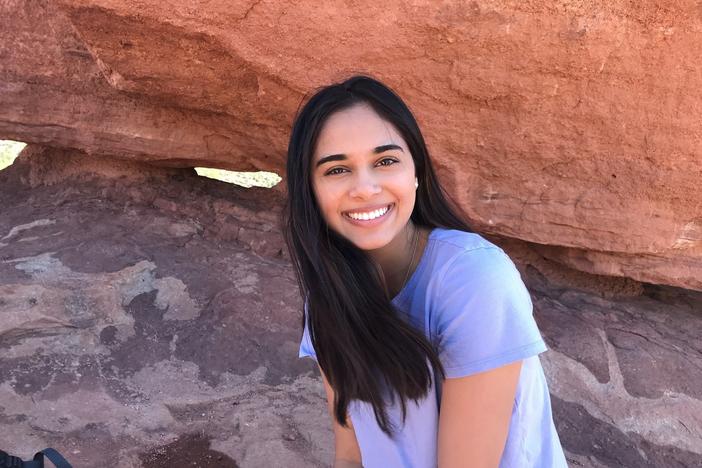Section Branding
Header Content
Russians Take To Streets For A Second Week Of Protests In Support Of Alexei Navalny
Primary Content
here are fears of more violence, arrests, and repression in Russia as supporters of Alexei Navalny hold a second wave of protests calling for his release from prison.
Transcript
LULU GARCIA-NAVARRO, HOST:
Braving subzero temperatures and masses of police, Russians have taken to the streets for a second weekend of protests. Tens of thousands have turned out to call for the release of opposition leader Alexei Navalny. Navalny was jailed two weeks ago after returning from Germany, where he had been receiving treatment after being poisoned with a chemical weapon. The number of arrests at this weekend's protest is now approaching 4,000 people. NPR's Moscow correspondent Lucian Kim was at the demonstrations in Russia's capital, and he joins us now. Good morning.
LUCIAN KIM, BYLINE: Good morning, Lulu.
GARCIA-NAVARRO: Demonstrators earlier today gathered outside the prison where Navalny is being held. There were plans to protest outside the headquarters of the state security agency, the FSB, in Moscow. What can you tell us?
KIM: Well, not a lot happened outside the FSB. The city authorities closed off metro stations in the center of the city and didn't let any pedestrians into the area. Navalny's team was hoping for a symbolic protest since they accused the FSB of trying to poison him. And when it became clear the downtown area was off-limits, one of Navalny aides who's outside the country started tweeting the locations of other rallying points around the city, including the prison where he's now being held.
GARCIA-NAVARRO: I mean, despite the certainty of arrests and crackdowns at today's protests, people still poured into the streets. I mean, there were extraordinary scenes. What do people tell you?
KIM: Well, I've covered a lot of protests in Moscow. And I have to say this one was the scariest I've been to. Riot police were everywhere. And I saw how they just plucked someone off the street and arrest them and put them in a police truck. Probably the most famous demonstrator arrested today was Navalny's wife, Yulia. I met one protester. Her name is Alina Morkalyamiva (ph). She's an architect. And she told me she was scared but that she had no choice but to come out.
ALINA MORKALYAMIVA: In Russia, the government is suppressing anyone who has an opinion different from a very narrow point of view. The propaganda makes you feel alone. That's why we came here - to show that we are not alone, that there are many of us.
KIM: She said she actually does not support Alexei Navalny as a politician, but she respects him for representing people who don't agree with Vladimir Putin. And I heard that same opinion from other protesters I spoke to.
GARCIA-NAVARRO: You know, these protests have been notable for their spread across a very vast country. We saw that last week. Do we know yet what's been happening outside of Moscow?
KIM: We do. We're getting reports from around Russia. It's already Sunday night on Russia's Pacific coast. Activists are reporting hundreds of arrests, as you mentioned. There have been clashes with police, a lot of really rough detentions and reports of police using tasers. This is hugely significant because the protest has truly become nationwide. In the past, rallies were often focused on Moscow and St. Petersburg. That's to Navalny's credit. He always saw himself as a national politician. He spent a lot of time traveling around Russia and building a support network there. And in fact, he was traveling in Siberia when he was poisoned.
GARCIA-NAVARRO: Well, let me ask you this. I mean, if that is the case and these protests are igniting across the country, does Vladimir Putin see them as a real threat?
KIM: Well, Lulu, we see how the government is responding right now with a really heavy hand, not brooking any dissent. What's different from earlier protests is that they've basically put all of Navalny's aides in jail, and they're also going after Russian journalists who are trying to cover these protests. The Kremlin likes to say that these protests are small and that the majority is for Putin. But when you consider that they literally shut down central Moscow today and filled it with police, you kind of get the impression that Vladimir Putin is feeling a little nervous.
GARCIA-NAVARRO: That's NPR's Lucian Kim in Moscow.
Thank you very much.
KIM: Thanks, Lulu. Transcript provided by NPR, Copyright NPR.
Bottom Content



